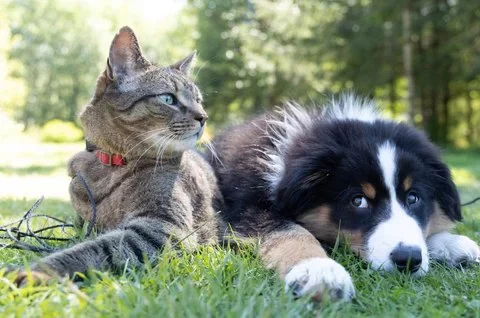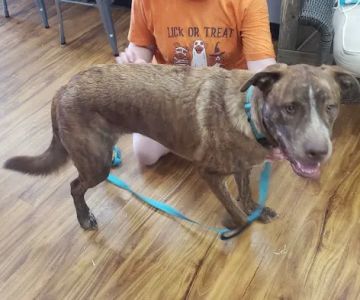- why-do-pets-experience-anxiety
- common-signs-of-anxiety-in-dogs-and-cats
- natural-methods-to-calm-your-anxious-pet
- real-stories-from-pet-owners
- when-to-seek-professional-help
1. Why Do Pets Experience Anxiety?
1.1 Understanding the Root Causes
Just like humans, pets can experience anxiety due to a wide range of triggers. Common causes include separation from their owners, loud noises like thunderstorms or fireworks, unfamiliar environments, past trauma, and even changes in routine. In 2025, veterinary professionals are seeing a steady increase in pet anxiety cases—largely due to changing family dynamics, urban living, and overstimulation from devices and other animals.
1.2 The Role of Breed and History
Certain breeds—like German Shepherds, Chihuahuas, or Siamese cats—are genetically predisposed to anxiety. Meanwhile, pets rescued from abusive situations or neglect often carry emotional scars that manifest as fear or stress. Understanding your pet’s background is key to supporting their emotional health.
2. Common Signs of Anxiety in Dogs and Cats
2.1 Behavioral Red Flags
Look for telltale signs like excessive barking or meowing, pacing, chewing furniture, inappropriate elimination, and aggressive or withdrawn behavior. Cats may overgroom or hide for extended periods, while anxious dogs often pant heavily or become clingy.
2.2 Physical and Emotional Indicators
You might notice trembling, dilated pupils, changes in appetite, or chronic digestive issues. Anxiety doesn’t always scream—it can whisper through subtle changes in daily behavior. The more in tune you are with your pet’s normal habits, the easier it is to spot these signs.
3. Natural Methods to Calm Your Anxious Pet
3.1 Create a Safe Space
Designate a quiet, comfortable area where your pet can retreat during stressful events. A cozy crate, an elevated perch, or a quiet closet with a familiar blanket can offer security. Soft lighting and white noise machines also help reduce overstimulation.
3.2 Use Natural Remedies and Tools
Natural calming aids like pheromone diffusers, lavender-scented sprays, or CBD pet treats are gaining popularity in 2025. These methods are often safer than prescription medications and are a great starting point for moderate anxiety.
3.3 Mental and Physical Stimulation
Interactive toys, puzzle feeders, and routine walks play a crucial role in anxiety management. Pets with plenty of positive outlets are less likely to display nervous behaviors. Regular play also reinforces the bond between you and your furry friend.
3.4 Positive Reinforcement and Routine
Praise calm behavior, ignore attention-seeking panic, and stick to predictable mealtimes and activities. Pets thrive on consistency. A steady routine reinforces their sense of security and trust.
4. Real Stories from Pet Owners
4.1 Willow the Rescue Cat
Jessica, a pet parent from Portland, shares: “My cat Willow was a shelter rescue who trembled during thunderstorms. I tried calming collars and music therapy with mixed results. What finally worked was daily playtime at the same hour, paired with a lavender-scented diffuser. Now she naps right through the noise.”
4.2 Max’s Journey with CBD
Tony from Dallas explains how CBD helped his Labrador, Max: “Max had separation anxiety so bad he chewed through three doors. We didn’t want to sedate him constantly, so we tried CBD oil from our vet. After two weeks, he was calmer, slept better, and we could finally go to work without fearing the worst.”
5. When to Seek Professional Help
5.1 Know When Natural Isn't Enough
If your pet’s anxiety becomes chronic or self-destructive—such as injuring themselves or others—it's time to involve professionals. Don’t hesitate to speak with your veterinarian about stronger interventions, behavior modification therapy, or medications.
5.2 Partnering with Experts
Behaviorists and holistic vets can work with you to build a tailored anxiety-reduction plan. At Hidden Brook Veterinary, for example, many pet parents receive support through behavioral assessments and natural supplement plans. Working with professionals makes a real difference when love and patience alone aren’t enough.












